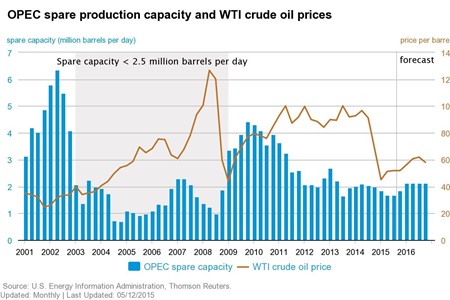Download PDF
H.E. the Prime Minister esquire;
H.E. the Speaker of the Federal Parliament esquire;
T.E: Members of the Federal Parliament and Ministers esquires.
On 2nd December 2014 a brief announcement was made in Bagdad pertaining to an oil agreement between the Iraqi Federal Government (IFG) and Kurdistan Regional Government (KRG). According to the said announcement (and related formal statements) it was emphasized that Iraqi oil belongs to all Iraqis; KRG will made available and transport a total of 550 thousand barrels per day (tbd) comprising no less than 250tbd oil produced by the KRG and 300tbd from Kirkuk; that total volume will be delivered to IFG through the pipeline system of the Region; IFG agrees to release KRG share in the annual budget (17%) and pays salaries and allocations for the Region’s military force-Peshmargah.
Since a true and complete text of the agreement has not been made public yet, our remarks were premised on the above brief announcement and related statements made by few officials. We observe that the agreement has positive and negative sides.
The most important positive aspects of the agreement are: the emphasis that Iraqi oil belongs to all Iraqis; KRG provides no less than 250tbd oil produced by the KRG for export purpose and it has melted the ice between the two sides. These positives remain though captured preventing the ability to build on them, which is not that easy due to the depth of the problems between the two governments.
As for the most significant negative aspects of the agreement it is not balanced and it did not address basic issues as it should be since these issues cannot be ignored any further. For clarification we register the following:
- According to the Federal Minister of Oil the export target for 2015 is 3.2 million barrel daily (mbd). The share of the Region at 17% would be 544tbd as compared with 550tbd committed by KRG towards the Federal Government. If we add the salaries and allocations for Region’s-Peshmargah and what is refined inside and outside the Region the balance will be tilted in favor of the Region at the expense of all Iraq public interest. Therefore this is Win-Lose not Win-Win deal, especially if the Region is exempted from sharing the Sovereign Expenses as implied by Mr. Hoshiar Zebari statement given to Iraq Oil Report when reportedly said KRG will receive its 17% full without Sovereign Expenses deduction.
- Petroleum literature and information show that the Region refines ca. 220tbd and export the surpluses of refined products to the neighboring markets. The current agreement did not address this issue despite the fact that it constitute significant portion of the Region’s oil production. By not addressing this important issue we consider it as an additional reward/gift to the Region while Iraq imports petroleum products in billions of Dollars annually, and the Region takes its share from these imports just like any other part of the country.
- The brief announcement did not make any reference to basic differences between the Federal and Region’s governments such as: the authority over the territories that were occupied by Peshmargah since last July and the management of oil therein specifically and in the Region generally as per articles 111 and 112 of the Constitution; the oil export revenues accumulated through smuggling; ignore the strategic agreement between the Region and Turkey, among others. Moreover, the announcement was silent about the Region’s oil production beyond the mentioned volumes; will it be delivered to the Federal Government or the Region exports it for its benefit? What about the legal actions already taken against the Region, or were they forgotten or what? Needless to say that these legal actions and suspending the Region’s share in the annual budget are best negotiation leverages/strengths in the hands of the Federal Government, which should not be waived away without corresponding returns.
- The share of the Region in the draft budget 2014 was calculated as percentage of total expenditures not as percentage of total revenues. Since total expenditures comprises fiscal deficit, then this practically means giving the Region additional funding more than its share in total revenue. Thus, a revision is needed so that the Region share should be premised as percentage of revenues not of expenditures. Moreover, annual budgets for 2013 and 2014 obliged KRG to deliver to IFG 250tbd and 400tbd respectively, but KRG defaulted and did not deliver any volume; IFG should claim these and get reimbursement
- Iraq Oil Report dated 10th December 2014) asserts that the above mentioned issues of principles were discussed but no agreement was reached on them. If that was the case why the announcement of 2nd December did not say so at least to avoid exploiting such omission as legal precedence on the base that non-mentioning of such matters could imply accepting them.
- From the above we conclude this agreement does not serve its declared objectives; it does not help in improving next year federal government budget, because all the added production from the Region and Kirkuk will go to the Region and even more; in the long run the Region could utilize this agreement as precedent to serve its interest on one hand and encourage other oil producing provinces to demand similar treatment on the other. And this is definitely not in the interest of Iraqi unity. The agreement also left basic problems without solution and gave away much of the national wealth to part of the country irrespective of its true population ratio, and without obliging that part for a corresponding equivalence. And while this agreement asserts that oil belongs to all Iraqis, it, nevertheless, did not translate this Constitutional principle into facts on the grounds. Also this is evident by what was said recently (in London on 18th December 2014) by KRG Minister of Natural Resources when he asserts that the Region has red lines which should not be crossed over and these are: the right of Region to export its oil and its right to continue controlling Kirkuk oilfields that was occupied last July.
Some might argue that this agreement aims at reintegrated the Region into the national tent and thus it is an acceptable price to pay; we think this is unrealistic optimism as evident by the deed and words of the KRG, including statements made by Mr. Ashti Hawrami referred to above and the way KRG had exploited the current security conditions to occupy Kirkuk and other areas and declared them part of the Region. - For that who wants to have a new beginning with the Region, he has to oblige the Region to correct its current and future conducts in return for forgiving the past. That means the new beginning should be formulated and premised on the Constitution as interpreted, in case of dispute, by the Federal Supreme Court not by the wishes or dictates of the Region.
- Therefore, we recommends the Federal Government to prepare properly for new round of negotiation according to the Constitution, fairness and sound principles such as no prior concessions; no concession without corresponding equivalent; do not undermines powerful negotiation cards/leverages it has such us suspending Region’s share in the budget and keeping the legal actions taken already against it; there should be certain objectives and fundamentals that is not permitted to violate them including the determination of the Region’s share in accordance with official records and recover what was paid to the Region differently; estimation of oil exported by the Region contrary to the Constitution and reimburses their values to state treasury; oil export should remain exclusively through SOMO; the Region should have its contribution to the sovereign expenditures similar to other parts of the country; the return of control and authority in the disputed areas to its position prior to the occupation in last July.
We hope that we were successful in shedding light on this agreement and that our remarks and analysis are beneficial and helpful to correct it and build on them for the service of and fairness to all Iraqis; with God’s blessing.
20 December 2014
Signed by: Tariq Ihsan Shafiq, Karim Ali AlShamma, Dr. Thamir Abdulhameed Uqaili, Kamil Mahmoud AlMehaidi, Fouad Qassim AlAmeer, Ahmed Mousa Jiyad, Abdulzahra Kadim AlMohamadawi, Hamza AlJawahiri, Dhyae Shamkhi AlBakka, Dr. Barik Schuber, Shamkhi Hwait Faraj, Munier AlChalabi, Dr. Kamil Abbas Mahdi, Husain Mahmoud AlMehaidi, Alla Khadum AlKateeb, Fouad Raouf AlKhadhimi, Noori Hamid AlAni, Ghathanfar AlKindi, Dr. Mahboob AlChalabi and Dr. Kamil AlAdhadh.
* This Statement was formally delivered to the intended recipient authorities by Dr. Mehdi Hafedh, Member of Parliament and former Minister of Planning as per his parliamentary memo number 103 dated 23 December 2014.
The opinions expressed are those of the authors, and do not necessarily reflect the views of the Iraqi Economists view








Comment here